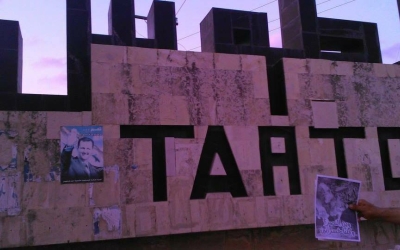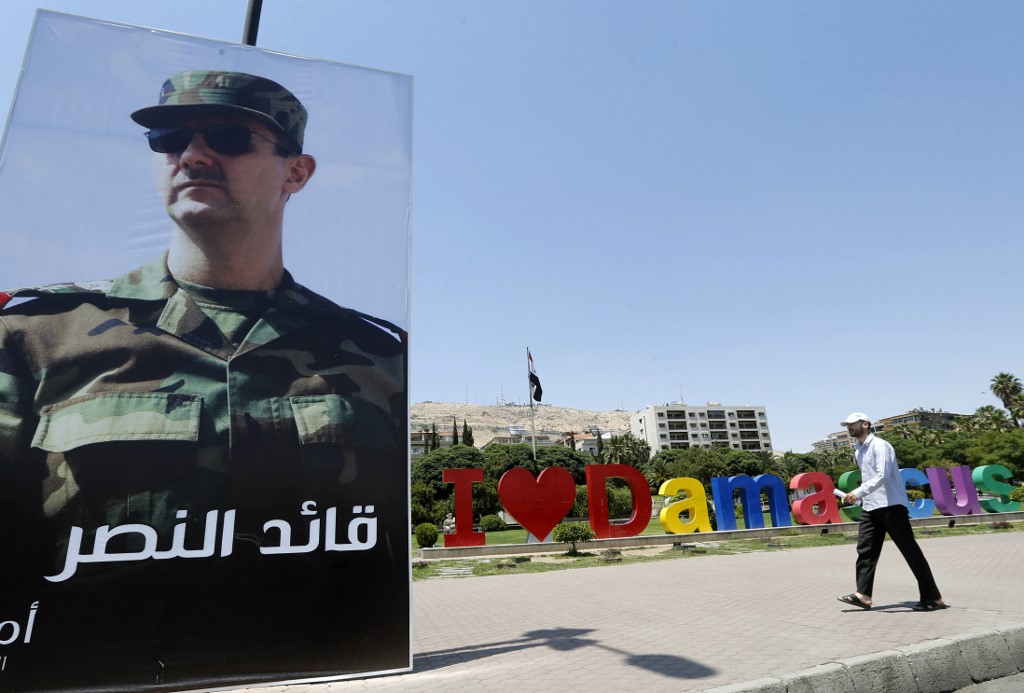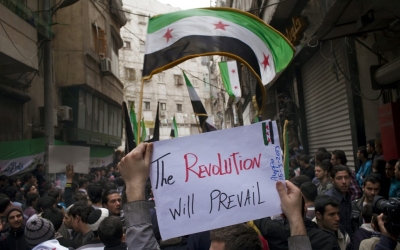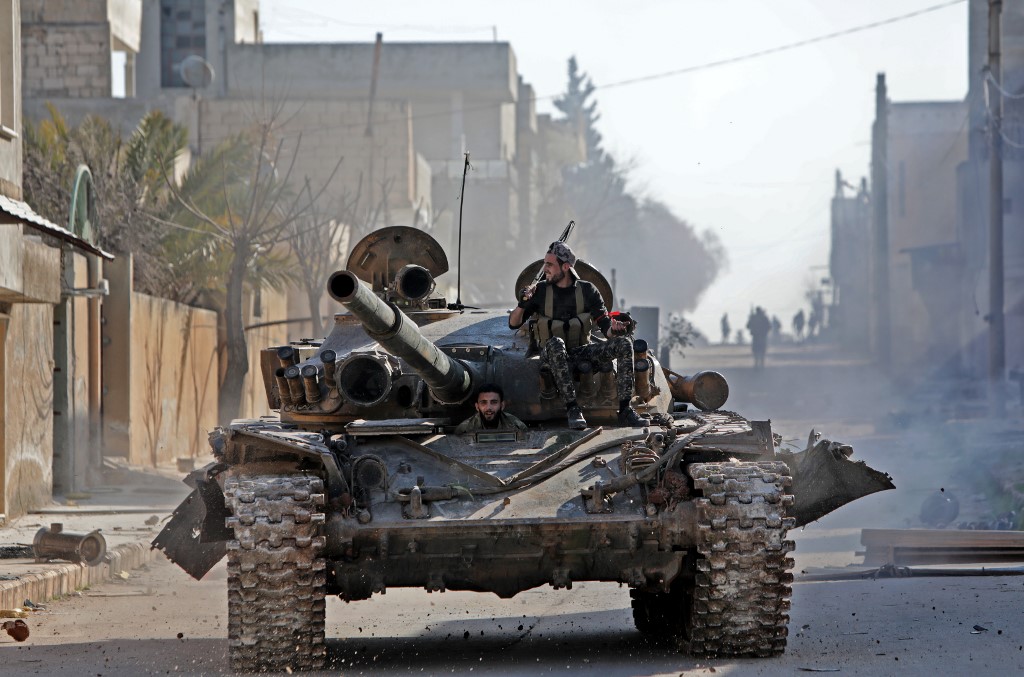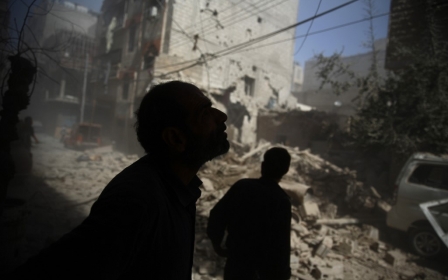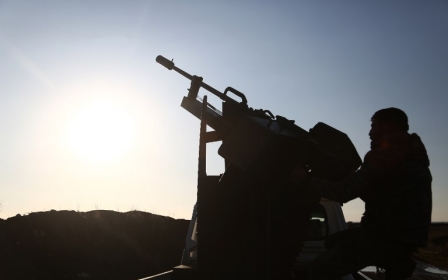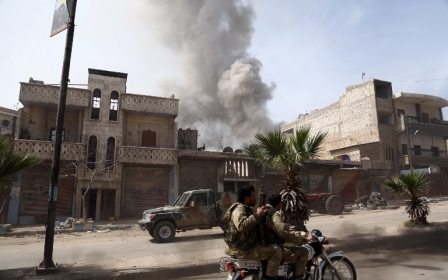Syria: Revelations about UK media operations challenge narratives of war
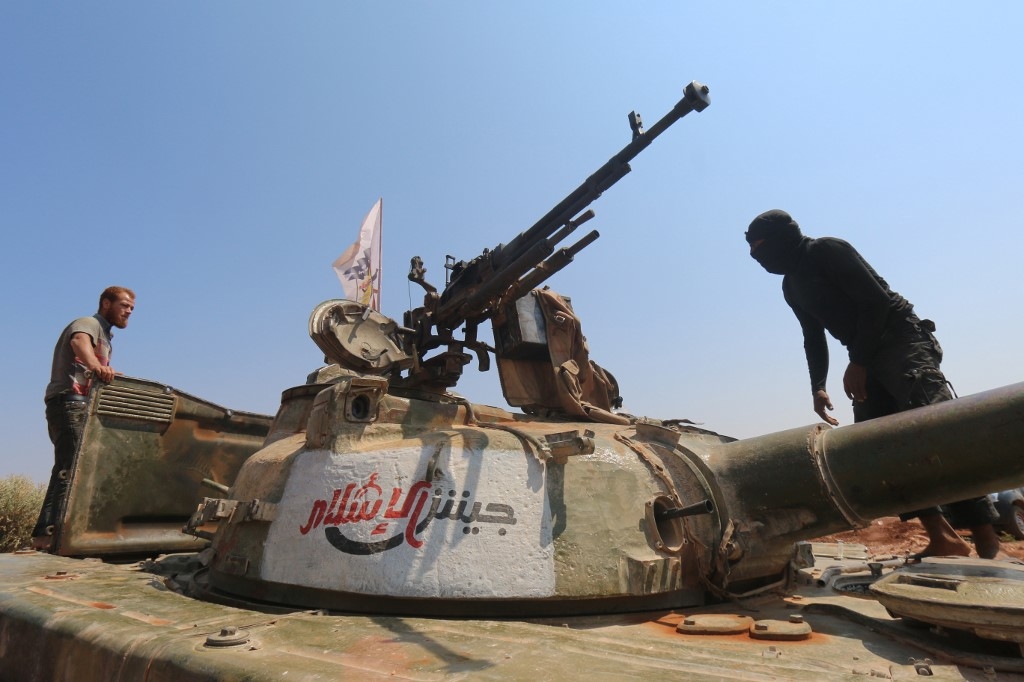
Documents obtained by investigative journalist Ian Cobain at Middle East Eye provide details of five UK covert propaganda programmes in Syria that began in 2012, involving the creation of a network of citizen journalists across the country to shape perceptions of the conflict.
The revelations challenge some of the dominant narratives of the war promoted in the British mainstream media, notably that the UK has played only a small or no role in the conflict, and that it has supported only “moderate” opposition groups.
They also confirm that the British public can be seen as a target for propaganda operations by their own government.
Propaganda programmes
The journalists involved in the propaganda programmes were hired from offices in Istanbul and Amman set up by UK government contractors with funding from Britain, the US and Canada. They were commissioned to produce TV footage, radio programmes, social media, posters, magazines and even children’s comics.
New MEE newsletter: Jerusalem Dispatch
Sign up to get the latest insights and analysis on Israel-Palestine, alongside Turkey Unpacked and other MEE newsletters
The stated purpose was to undermine both Syrian President Bashar al-Assad and the Islamic State (IS) terrorist group, and to bolster the “moderate” Syrian opposition by promoting the “popular rejection of the Assad regime and extremist alternatives”.
The documents raise key questions about the extent to which media coverage of the Syrian war has been influenced by British propaganda
The projects were run by Britain’s Ministry of Defence (MOD) and military intelligence officers, and guided by the government’s National Security Council, Britain’s highest policymaking body, with a budget of £9.6m ($11.9m) during 2015-16 alone, with more money earmarked for later years.
The documents show that the UK was covertly running parts of the Syrian opposition. It awarded contracts to communications companies that selected and trained opposition spokespeople, managed their press offices and developed their social media accounts.
Although the propaganda initiative was primarily aimed at Syrians both inside and outside the country, the documents make clear that UK audiences could sometimes be “a specified target” of media material and that some “may reach the UK information space”.
Prolonging the war
The Syrian war has been violently and tragically fought on the ground, with hundreds of thousands killed and millions displaced. There were no easy solutions to the conflict, but British covert action contributed to the war, helping to prolong it.
Syria has also produced an information war waged by various sides to the conflict. The degree to which public perceptions have been shaped by British government information managers can, so far, only be estimated.
Still, the evidence that has emerged belies the notion that the UK was supporting only “moderate” opposition forces in Syria. Documents on the UK’s propaganda campaign examined by the Guardian in 2016 list several groups considered to be part of the “moderate armed opposition”. One was Jaysh al-Islam, a coalition of some 50 Islamist factions operating in and around Damascus and funded by Saudi Arabia.
This group excluded IS and al-Nusra, the al-Qaeda affiliate in Syria, and embraced non-jihadist units, but was led by Zahran Alloush, the former head of Liwa al-Islam, one of the most effective rebel fighting forces in the Damascus area. Alloush later merged his group with Nusra, and was not known as a moderate; one analyst notes that his forces were seen flying al-Qaeda’s black flag.
Jaysh al-Islam has also been criticised for using imprisoned civilians as human shields, and for releasing a glossy video in 2015 showing the grisly murder of 18 captive IS fighters, a war crime under the Geneva Conventions.
In 2015, a British court case collapsed when it was revealed that British intelligence agencies were supporting the same Syrian opposition groups as a Swedish national, Bherlin Gildo, who was alleged to have attended a terrorist training camp and received weapons training to fight in Syria. Gildo was reported to have worked with Nusra.
Denouncing Assad
The new revelations are remarkable in that they confirm the extent to which the publicity work of opposition groups that the UK government has consistently invoked as legitimate opponents of the Assad regime can be traced back to London itself.
One of the programmes was managed by a cross-government initiative called the Conflict, Stability and Security Fund, which aims to tackle conflicts that threaten UK interests. It has been criticised for the way government funds found their way to extremists in Syria and, more generally, for its lack of transparency and backing for human-rights-abusing regimes.
Of the five programmes detailed in the documents, four were outsourced to British communications companies, some run by former army or intelligence officers. A fifth was outsourced to a US-based polling company, Pechter Polls, which devised a web-based protest movement that claimed to be a grassroots campaign by members of Syria’s Alawite community but was actually created on behalf of the British government.
Known as Sarkha (“The Cry”), the campaign began in 2014 and sought to encourage members of Syria’s Alawite community to accept that Assad, while a fellow Alawite, was also a tyrant, and to denounce sectarianism.
In a short period of time, the campaign drew in support from most parts of the country, with its main Facebook page receiving around 100,000 likes before evolving into a website.
Influence over media
The documents raise key questions about the extent to which media coverage of the Syrian war has been influenced by British propaganda.
Material was distributed to Arabic-language media organisations through what was purported to be the press offices of Syrian opposition groups. It included film clips of opposition fighters handing out food or using sophisticated weaponry to good effect, which would then go to Sky News Arabia, BBC Arabic or Al Jazeera.
Some prominent British journalists visiting Istanbul would be introduced to Syrians acting as opposition spokespeople, who had been prepared for the encounter by British handlers
Many Syrian staff working in these projects were unaware that they were funded and managed by the UK government. British staff running the opposition groups’ offices “were told that their Syrian employees were permitted to talk to British journalists - as spokespeople for the Syrian opposition - but only after receiving clearance from officials at the British consulate in Istanbul”.
The level of media management is noteworthy. Some prominent British journalists visiting Istanbul would be introduced to Syrians acting as opposition spokespeople, who had been prepared for the encounter by British handlers. Many of these citizen journalists used equipment they believed was being supplied by opposition groups but which had in fact been bought using funds supplied by the UK government.
So much material was produced by the propagandists that they created “a constellation of media outlets” in which “Syrian audiences and activists got lost and were distracted” and people no longer knew who or what to believe, according to an internal review of the programme seen by MEE.
Inaccurate mantra
Britain’s role in the war in Syria has been distinctly under-reported and misreported in the UK mainstream media. While the media has widely reported on UK military operations against IS, its covert operations against the Assad regime have received much less attention.
The media has been keen to repeat government lines about the atrocities committed by the Assad regime. By contrast, opposition forces have been largely given a free pass, with many reports failing to even note that in many parts of Syria, those groups have been controlled or dominated by jihadists.
Evidence suggests that Britain began covert operations in Syria in late 2011 or early 2012. The UK was intimately involved in arms shipments, training and organising the opposition in a years-long secret operation with its US and Saudi allies.
In the first years of the conflict, the enemy was the Assad regime, a target for UK military operations that continued until at least mid-2018. Yet, the mantra repeated in the Guardian and its sister publication, the Observer, is that Britain has “failed to act” in Syria. An Observer editorial in August 2019 cited “the West’s shameful failure to act” and described “Western governments’ neglect of the eight-year war”.
Intelligence-gathering role
The revelations highlight the array of assets the British military and intelligence establishment can draw on to promote covert operations.
The companies involved in bidding for the contracts included several established by former British diplomats, intelligence officers and army officers. Although the contracts were awarded by the UK foreign office, they were managed by the MOD and sometimes by military intelligence officers.
Noteworthy also is that the propaganda element of these programmes was accompanied by an intelligence-gathering role, to acquire further information on the alliances and activities of opposition forces. A key benefit was assessed to be the British government’s “connectivity to different (armed or non-armed) networks”.
The press offices set up covertly by the British government sought to “maintain an effective network of correspondents/stringers inside Syria to report on MAO [moderate armed opposition] activity”. In this way, Cobain notes, “the British government was able to exert behind-the-scenes influence over conversations that the UK media was having with individuals who presented themselves as Syrian opposition representatives”.
The views expressed in this article belong to the author and do not necessarily reflect the editorial policy of Middle East Eye.
Middle East Eye delivers independent and unrivalled coverage and analysis of the Middle East, North Africa and beyond. To learn more about republishing this content and the associated fees, please fill out this form. More about MEE can be found here.



